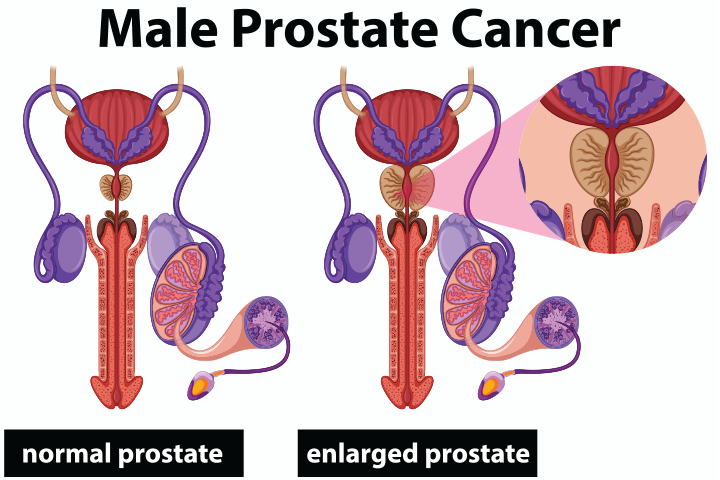Men’s Health edition of The Pulse
Prostate cancer is the most common cancer and the second leading cause of cancer death among men in the United States.
This means you should set a date to screen your prostate.
Common Risk Factors
The most common risk factor for prostate cancer is age. The older you get, the greater your chance of getting prostate cancer. Family history and ethnicity are also risk factors.
You can't control some risk factors, but making healthy lifestyle choices may help you lower your risk:
- Maintain a healthy weight.
- Eat fruits, vegetables, and whole grains.
- Limit dairy, red and processed meat, sugary drinks, and highly processed foods.
- Stay physically active.

Symptoms of Prostate Cancer
Sometimes prostate cancer has no symptoms. However, symptoms can include:
- blood in urine
- trouble starting or stopping the flow of urine
- a frequent, urgent need to pass urine, even when there is only a small amount
- pain or burning when urinating
- weak urine flow
- chills and high fever
- low back pain or body aches
- pain in the belly, groin or behind the scrotum
Men can have prostate changes that cause similar symptoms listed above but aren't due to cancer. For example, as you age, your prostate tends to grow, which can decrease urine flow.
Screening Recommendations
If you're age 55–69 years, the U.S. Preventive Services Task Force recommends you talk to your doctor about which prostate cancer screening is right for you.
No standard or routine screening test for prostate cancer exists.
Two of the most common screenings to help find cancer early when treatment is most effective are:
- Prostate-specific antigen (PSA) blood test — A higher than usual level of PSA may indicate cancer is present.
- Digital rectal exam (DRE) — Checks the texture, shape or size of your prostate gland for abnormalities that could indicate cancer.
If your doctor finds an abnormality during screening, they may perform other tests to confirm or rule out cancer. These may include:
- ultrasound
- magnetic resonance imaging (MRI)
- prostate biopsy
Talk to your doctor about your individual benefits and risks of screening so you can make an informed decision.
Remember, your TRS health plan covers 100% of your preventive care.
Resources
TRS-ActiveCare and TRS-Care Standard
To find a primary care provider, call a Personal Health Guide at 1-866-355-5999 or chat in the BCBSTX App 24/7. Or use Provider Finder® to search for a provider:
TRS-Care Medicare
Call TRS-Care Medicare Advantage Customer Service at 1-866-347-9507, 7 a.m. – 6 p.m. CT, Monday through Friday. TTY users, call 711.
Sources
- National Cancer Institute. Prostate Cancer, Accessed May 25, 2023.
- Centers for Disease Control and Prevention. Who is at Risk for Prostate Cancer?, February 2023.
- Centers for Disease Control and Prevention. What is Screening for Prostate Cancer?, August 2022.